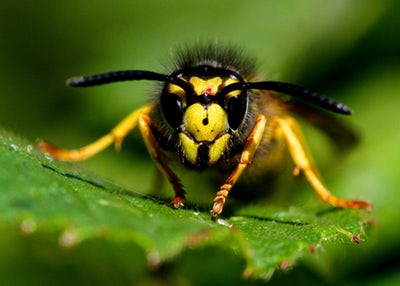
Did you know that researchers are currently working hard on creating drones that can carry out the same jobs as bees?

This should tell you two things:
- Science is AMAZING
- Bees must be pretty darn important!
So why is it that we need bees so much? Just how reliant are we on our busy little friends? And what chance do scientists have of actually replacing bees?
No matter what type of food you are eating, bees will likely have had at least an indirect role in helping it to get there. That’s of course because bees pollinate vegetables and fruits. Either you’re eating something that was pollinated by a bee, or you’re eating something that ate things pollinated by bees! One third of food is pollination dependent, and there are 70 different types of crop that are pollinated by bees.

What precisely is pollination you ask? Essentially, it is the method by which plants reproduce. Rather than mating with a member of the opposite sex, plants instead use their bright colors and sweet scents to lure over bees. Plants actually have both male and female parts: the pollen grains and the stigma respectively.
Bees fly over to the plants in order to extract sugar that they use in the creation of honey. As they do, their wings flap thousands of times per minute, creating a huge amount of static electricity. That electricity then draws the pollen up from the plant where it will attach to the bee’s fir.


Now, pollen transfer can actually be handled by a whole range of animals – and even by the wind! But nothing is able to pollinate at quite the same rate or scale as the busy little honey bee.
But bees are in serious trouble. Insecticides, parasitic mites, and habitat loss are all serious threats to bee populations, which is leading to widespread loss. Thus, we are witnessing ‘catastrophic colony collapse disorder’ in numerous hives.
So, what can we do? Fortunately, we do have options. Already, new laws have been put in place to help try to protect honey bees. Their populations are being managed, and the use of certain insecticides has been banned in the EU.

Potential candidates to replace honey bees include bumblebees, hover flies, and even mankind! And finally, we are hearing more and more about the potential use of robotic bees. One company to file such a patent is the – somewhat unlikely – Walmart! Others are also looking at robots that will use sensors and cameras to navigate and pollinate crops.
While this is a brave new future, the hope is that we can avoid the need to replace bees all together. And you can do your bit right now by throwing out the insecticides and using more bright flowers and fruits to attract bees to your own garden!

Scientists have been working to understand and reverse the phenomenon. While no single culprit has been identified, it is clear that we can do a number of useful things to maintain bee health. New York Bee Sanctuary was founded to spread knowledge of this crisis and work toward its solution.
New York Bee Sanctuary is building a wildlife sanctuary for honey bees and pollinators in New York State, with programs to promote conservation of our vital insect friend all across the US.

The Hippie Bee is close to our heart because we created it in collaboration with the New York Bee Sanctuary.
The Hippie Bee is an Ultra Portable Pod System is an ergonomically designed with simplicity and efficiency in mind, featuring an integrated 380mAh rechargeable battery. The U-shaped airflow design within the pods ensure that it is leak proof and does not have spit-back of juice with proper maintenance and care.
Check out this perfectly designed device.
Be part of our mission and help create this sanctuary!
